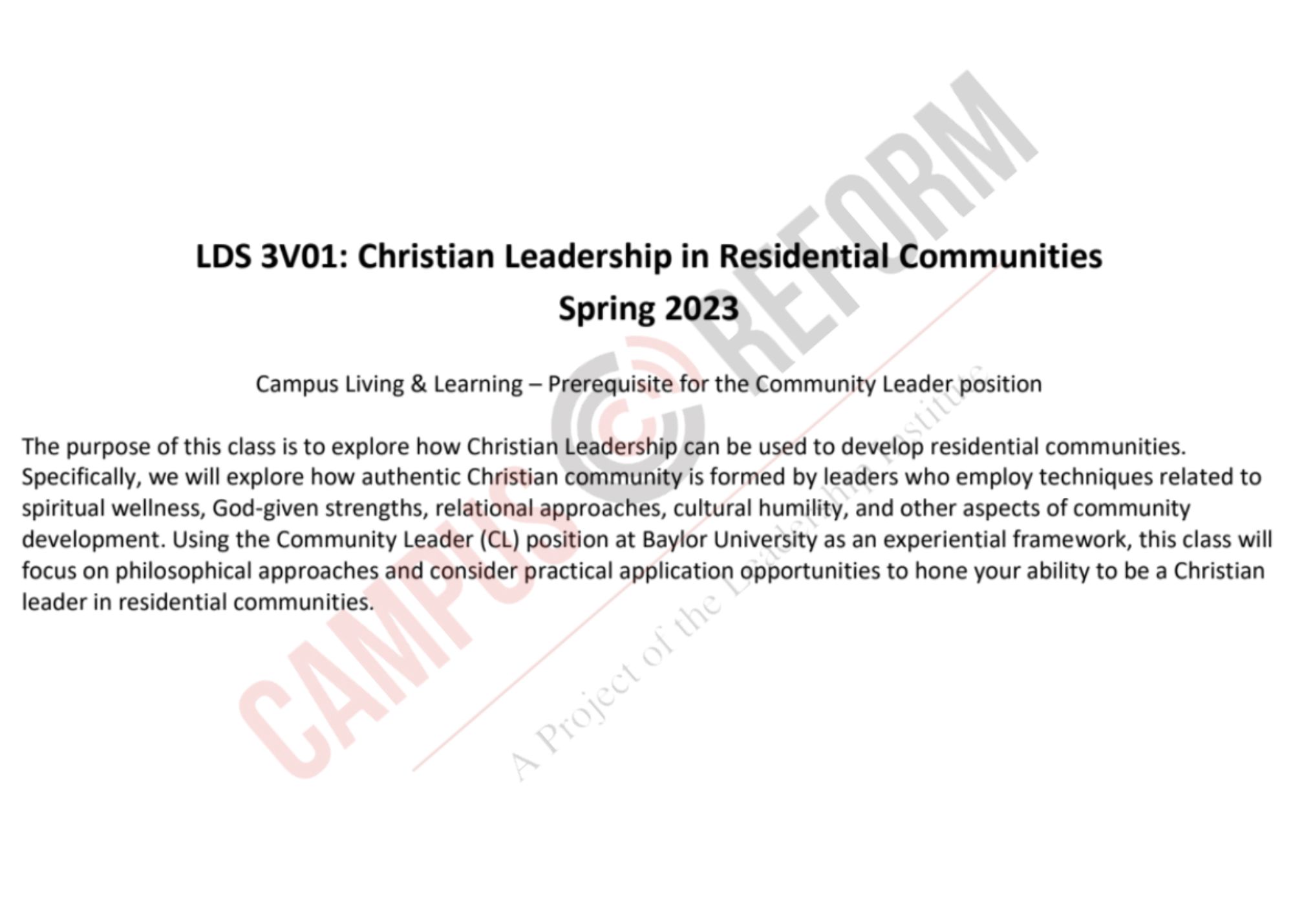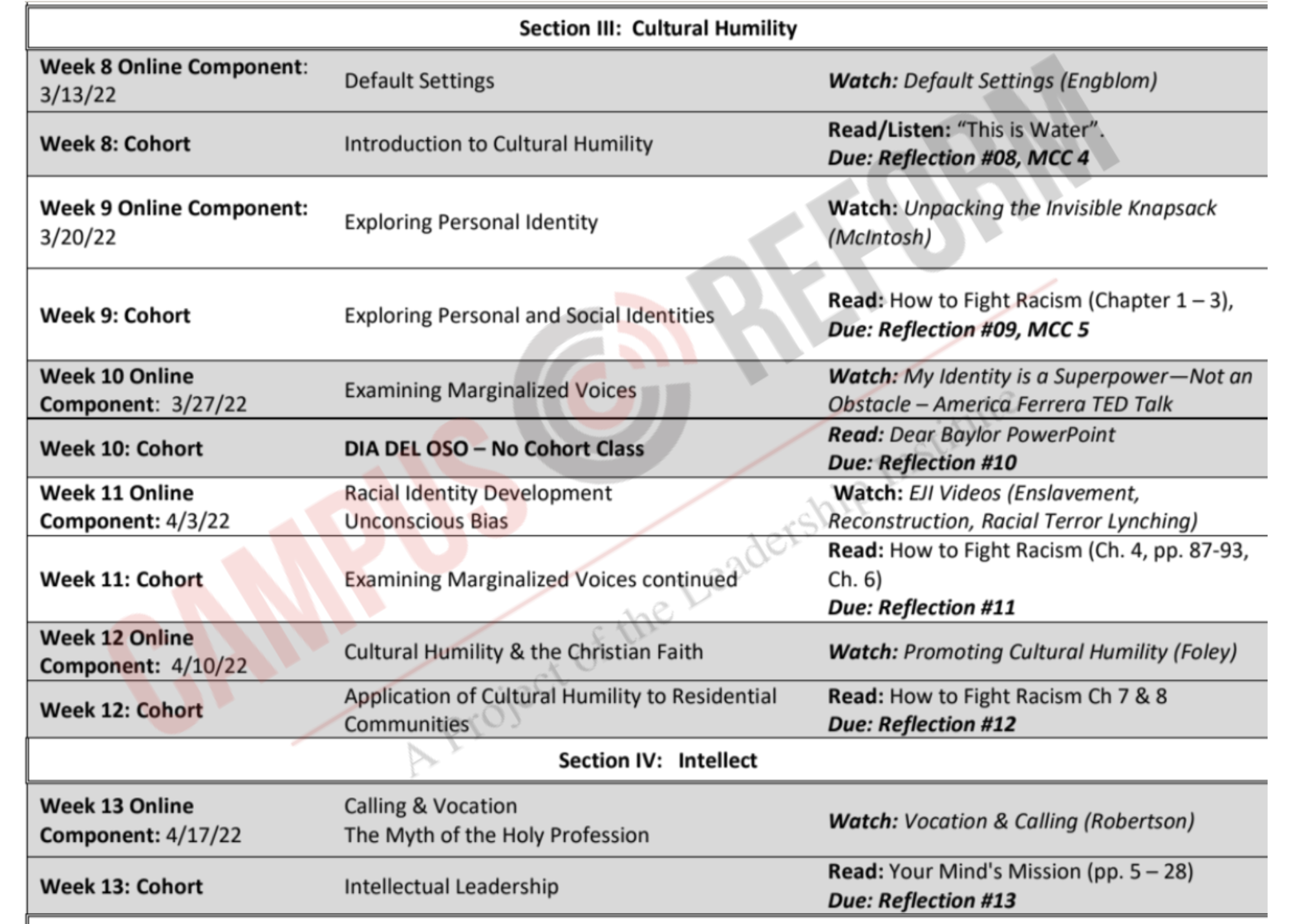EXCLUSIVE: White resident assistants called to have 'awakening' in mandatory 'Cultural Humility' course
Campus Reform obtained a copy of the syllabus for a spring 2023 course, 'Christian Leadership in Residential Communities,' which teaches Baylor University RAs about 'Cultural Humility.'
One lecturer describes moving beyond a default setting and says that this process 'could be particularly challenging in the next few weeks for … white students.'
Students who want to work as resident assistants (RAs) at Baylor University must take a course that teaches “Cultural Humility”–particularly for white students.
Campus Reform obtained a copy of the syllabus for the spring 2023 course, “Christian Leadership in Residential Communities,” a requirement for RAs.

Baylor is a Christian university in Waco, Tex.
The “Cultural Humility” lessons, according to the syllabus, included “Default Settings,” “Examining Marginalized Voices,” and “Racial Identity Development Unconscious Bias.”
As part of the “Default Settings” lesson, students watched a presentation by Associate Director for Resident Learning Rob Engblom. “It can be hard for us to acknowledge or see a reality around us that we have not been able to perceive before,” he says.
Moving beyond a default setting, he continues, “could be particularly challenging in the next few weeks for … white students.”
“This could be harder for you [white students] because you may be exposed to concepts or ideas or experiences that you didn’t know exist,” Engblom says.
[RELATED: Students required to complete ‘Privilege Checklist’ in mandatory first year course]
Engblom references White Awake: An honest look at what it means to be white, a book about examining one’s white identity to achieve “cultural awakening.”
He quotes the book, describing the experience of confronting issues related to diversity. “Our peers of color are forced to experience this reality that we sometimes fight against,” Engblom says. “They can’t turn that off.”
One of the course assignments had students reading another book, How to Fight Racism: Courageous Christianity and the Journey Toward Racial Justice. The assignment included a reflection paper, according to the course syllabus.

A student participant, who requested anonymity, told Campus Reform that How to Fight Racism “was one of the most surprising things” about the course.
“Within the first page,” the student writes, “the author immediately accuses [c]onservatives of racism and being against democracy.”
[RELATED: Tufts University hosts ‘Unpacking Whiteness’ discussion series]
Participants also viewed a privilege diagram and “had to write who had the most power” based on “religion, race, [and] gender,” according to the student.
The course’s approach to discussing race, the student says, was “unexpected.”
“I thought that maybe it would just be a ‘be accepting of all residents’ type [of] thing, but it was critical race theory!”
A second student, who also wished to remain anonymous, describes completing the privilege diagram, a worksheet that the students say comes from the University of Michigan.
“My initial reaction to hearing the words ‘Cultural Humility’ was positive. The Bible tells us to be humble,” the student told Campus Reform.
But the student continues to say that the worksheet reduces students to a few aspects of their identities while not centering their relationship to Christ even though they are at a Christian school.
”While these aspects are still apart [sic] of us, what’s more important than your race, language, economic status, and sexual orientation are your beliefs, morals, and character,” the student writes.
”Christ is not just another item on our daily list that we can check off. He should be in every part of our studies, activities, and lives and we should find our identity in Him and Him alone.”
Campus Reform contacted all relevant parties listed for comment and will update this article accordingly.

